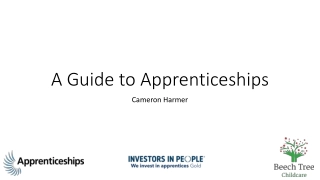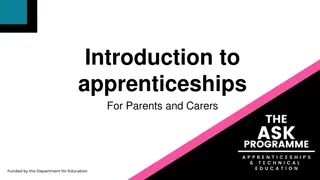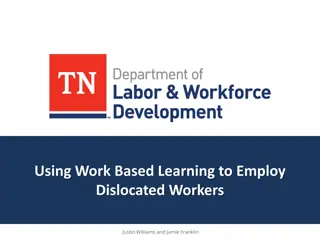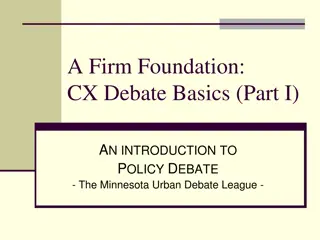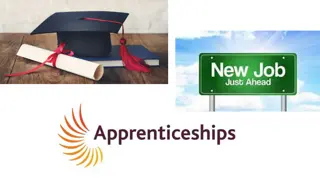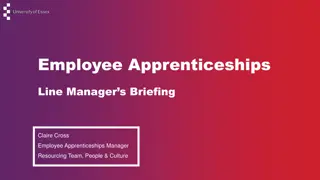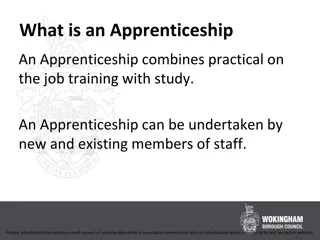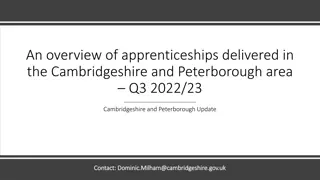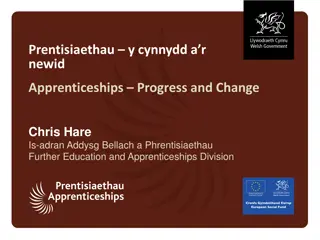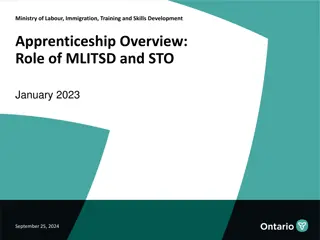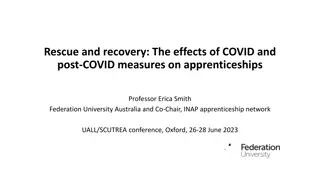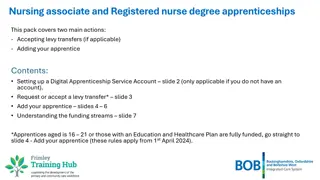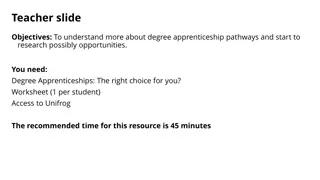The Great Apprenticeship Debate: For or Against Apprenticeships
The lesson involves a debate on the merits of apprenticeships, with arguments for and against discussed. Students are encouraged to consider factors such as cost, time commitment, social life, workplace experience, and more. Debate rules emphasize the importance of using evidence, respecting others, and managing time effectively. Furthermore, home learning tasks students with preparing a short speech on the benefits of apprenticeships based on the ideas explored in the debate.
Download Presentation

Please find below an Image/Link to download the presentation.
The content on the website is provided AS IS for your information and personal use only. It may not be sold, licensed, or shared on other websites without obtaining consent from the author.If you encounter any issues during the download, it is possible that the publisher has removed the file from their server.
You are allowed to download the files provided on this website for personal or commercial use, subject to the condition that they are used lawfully. All files are the property of their respective owners.
The content on the website is provided AS IS for your information and personal use only. It may not be sold, licensed, or shared on other websites without obtaining consent from the author.
E N D
Presentation Transcript
The great apprenticeship debate In this lesson we will be holding a debate. Your task will be to argue either for or against the following statement Use the student worksheet to record some of your ideas for the debate. We will now watch a short film to provide you with more information.
FOR or AGAINST ideas For apprenticeships Against apprenticeships Apprentices don t pay any fees for an apprenticeship so finish without debt. Apprentices don t have as much dedicated time to devote to their subject because they are also working full time. Apprentices are paid a salary and are also entitled to paid holiday time. Apprentices don t have the university social life. Apprentices learn on the job, in the workplace, working alongside experienced colleagues. University students don t necessarily have to choose a career to specialise in whilst studying. Apprentices start gaining workplace experience and building professional connections straight away. Apprentices have fewer holidays than full time students.
Debate rules: Make sure you use a range of connectives when you are speaking. Don t start speaking without a connective ready. Be courteous to others. Do not talk over each other. If a speaker makes a statement, they must be able to provide evidence or reasons to support the statement. Facts presented in a debate must be accurate. Respect the time limits for each speaker. Allow space for questions from the audience.
Home learning Using the ideas from the debate lesson, be ready to give a short speech (1-2 minutes) on the benefits of apprenticeships. You may find it useful to refer to the latest Higher & Degree Apprenticeship listing which can be found here https://amazingapprenticeships.com/higher-degree-listing/


